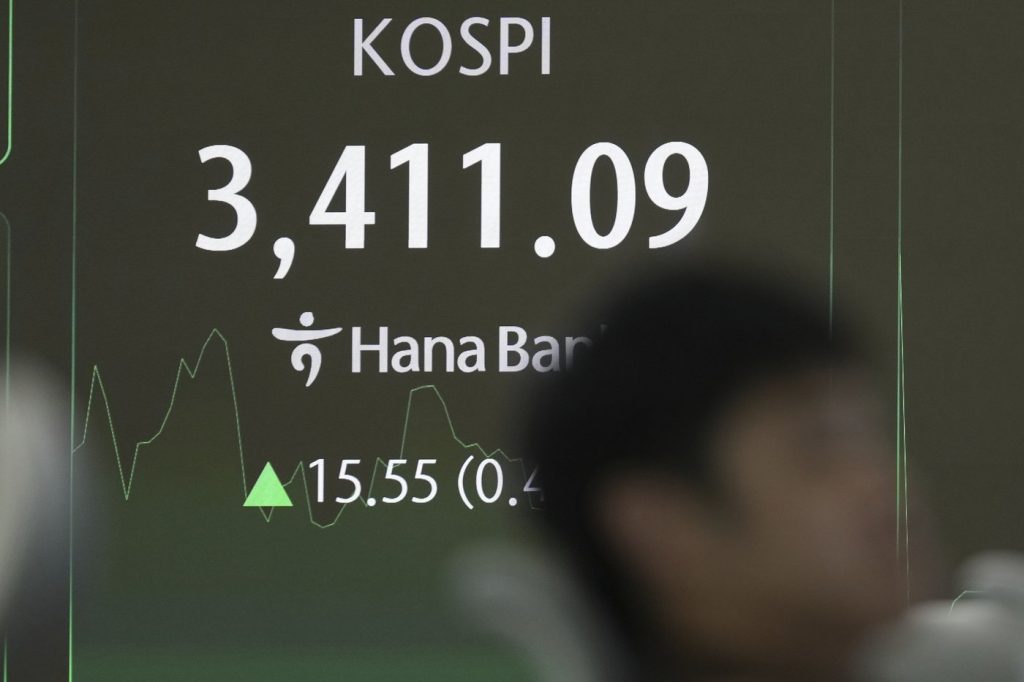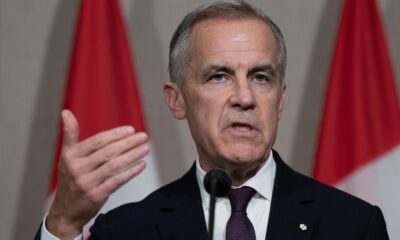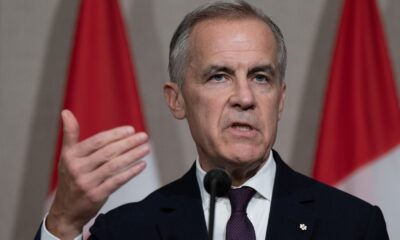Top Stories
Asian Markets Surge as Wall Street Rallies Boost Investor Confidence

UPDATE: Asian shares are experiencing a notable surge today, following last week’s robust performances on Wall Street. As of September 18, 2023, Hong Kong’s Hang Seng index has risen by 0.4%, reaching 26,505.18, while the Shanghai Composite has edged up 0.2% to 3,878.57.
Market optimism is fueled by last week’s rallies on U.S. exchanges, with investors reacting positively to the potential for interest rate cuts by the Federal Reserve. However, beneath this bullish sentiment lies growing concern about China’s economic stability. Analysts predict that the data for August remains insufficient to signal sustained growth, particularly due to the impacts of U.S. tariffs under President Donald Trump. Notably, China’s retail sales increased by 3.4%, and factory output rose by 5.2%, yet these figures have not quelled fears of an economic slowdown.
“The underlying flow is shifting,” stated Stephen Innes, managing partner at SPI Asset Management. “For years, Beijing relied heavily on exports for growth, but with Trump’s tariffs disrupting supply chains, that support is diminishing.”
In Australia, the S&P/ASX 200 has dipped 0.3% to 8,836.50, while South Korea’s Kospi gained 0.4%, reaching 3,409.94. It’s important to note that trading in Japan is on hold today due to a national holiday.
Last Friday, Wall Street closed with mixed results: the S&P 500 slipped slightly by 0.1% from its recent all-time high, while the Dow Jones Industrial Average fell by 273 points, or 0.6%. The Nasdaq composite managed a gain of 0.4%. Investors are keenly awaiting the Federal Reserve’s upcoming meeting, where a decision on interest rates is expected. If the anticipated cuts do not materialize, market reactions could shift dramatically.
In the bond market, the yield on the 10-year Treasury has rebounded slightly, rising to 4.06% from 4.01%. In energy markets, benchmark U.S. crude oil prices increased by 42 cents to $63.11 per barrel, while Brent crude added 41 cents, reaching $67.40.
Currency traders noted a slight decline in the U.S. dollar, which fell to 147.45 Japanese yen from 147.65 yen. The euro remained stable at $1.1730.
As the week progresses, investors will closely monitor developments regarding U.S. monetary policy and China’s economic indicators, which will be critical in shaping market sentiments. Stay tuned for more updates as this story unfolds.
-

 World4 months ago
World4 months agoScientists Unearth Ancient Antarctic Ice to Unlock Climate Secrets
-

 Entertainment4 months ago
Entertainment4 months agoTrump and McCormick to Announce $70 Billion Energy Investments
-

 Lifestyle4 months ago
Lifestyle4 months agoTransLink Launches Food Truck Program to Boost Revenue in Vancouver
-

 Science4 months ago
Science4 months agoFour Astronauts Return to Earth After International Space Station Mission
-

 Technology2 months ago
Technology2 months agoApple Notes Enhances Functionality with Markdown Support in macOS 26
-

 Top Stories3 weeks ago
Top Stories3 weeks agoUrgent Update: Fatal Crash on Highway 99 Claims Life of Pitt Meadows Man
-

 Sports4 months ago
Sports4 months agoSearch Underway for Missing Hunter Amid Hokkaido Bear Emergency
-

 Politics3 months ago
Politics3 months agoUkrainian Tennis Star Elina Svitolina Faces Death Threats Online
-

 Technology4 months ago
Technology4 months agoFrosthaven Launches Early Access on July 31, 2025
-

 Politics4 months ago
Politics4 months agoCarney Engages First Nations Leaders at Development Law Summit
-

 Entertainment4 months ago
Entertainment4 months agoCalgary Theatre Troupe Revives Magic at Winnipeg Fringe Festival
-

 Top Stories1 week ago
Top Stories1 week agoFamily Remembers Beverley Rowbotham 25 Years After Murder





















